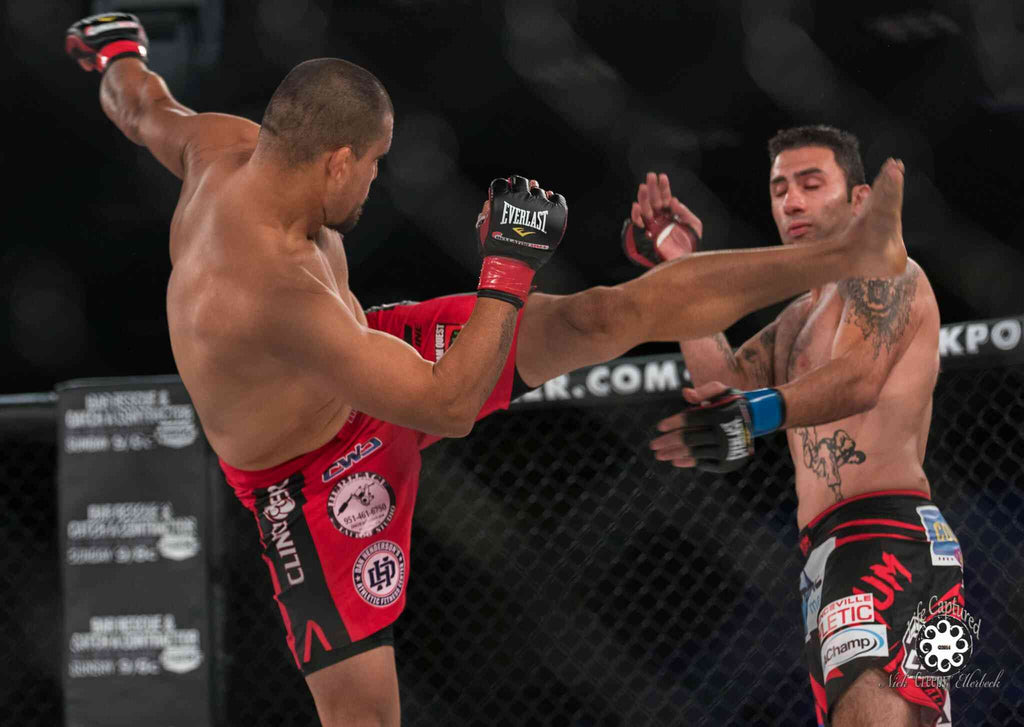Carbohydrate Management for MMA Athletes
It is well known in fighting circles that carbohydrates are the fuel your body uses for training. Protein builds your muscles, and fat keeps your systems rolling, but carbs are king when it comes to making your body hum through those sparring, drilling and running sessions. But what you may not know is that their consumption, type, and timing of use can have a great impact upon not only how your body looks and feels, but how you perform on the mats when engaging in mixed martial arts. Let’s check out some tips and tricks for wiser carbohydrate management to help your reach your training and fighting performance goals.
Choose the right types
A carb is NOT a carb. A slice of white bread and a small banana both have roughly 80 calories, but the effect they will have upon your training, stamina, digestion and overall feeling of well-being couldn’t possibly be further apart. The slow-burning carbohydrates such as sweet potatoes, pasta, whole-grain bread, brown rice, and oatmeal should be your primary choices. These slow-burning options are excellent for maintaining your body’s insulin levels and curbing hunger while you work and train.
Cheat days rock!
Most days, you should avoid giving your body any number of calories above your optimal number. However, seeing as you are a human being, there are going to be times when you wish to engage in a little junk food consumption. Aside from the positive mental results this brings, you will also see a slight bump in your metabolism, which helps you to drop body fat and become a more efficient, leaner fighter as a result! Keeping fat levels in check should always be a top goal for MMA fighters!
Cut the carbs in the PM
Of course you need plenty of carbs each day to fuel your training and other bodily needs, but the timing of their consumption can have a great effect upon your body fat levels. Since you’re looking to fight at your desired weight, while at the same time adding as much muscle mass as possible, you are going to want to reduce your daily carbohydrate intake by 4 or 5 pm. If you train in the evening, this time will be pushed back. Ideally, you want your body to be burning stored body fat for fuel in the evening, and not carbohydrates in your body in the form of sugars in your digestive system.
Rotate high and low carb days
On the days you aren’t training, your body burns fewer calories. On these days, you don’t need as much food – nor as many grams of carbohydrates – for daily function. Therefore you should consider cutting your carbohydrate intake by 30 to 50% on these non-training days. This will also keep your body fat in check, and provide a nice bump to your metabolism in the following days when you bump the carb intake back up!
Choose the right snacks
Yogurt & cottage cheese are the perfect snacks for the mixed martial arts fighter intent on keeping his insulin levels primed and appetite under control. You’ll also enjoy the added boon of calcium and will keep your fat levels in check while providing your body with a continuous source of energy from the carbohydrates. Eat slowly and steady throughout the day – almost grazing – choosing the correct foods such as cottage cheese and yogurt.
Stay hydrated
Consuming carbohydrates – particularly the correct kinds in large quantities – can lead to constipation and other digestive issues. Before you resort to the use of laxatives and other unnatural means, solve things by just increasing your water intake. You probably sweat a ton already, with your training and running. Most untrained, sedentary people need half a gallon of water each day. You should be consuming 1 to 1.5 gallons of water each day for maximum training effectiveness and digestion, as well as overall health!





